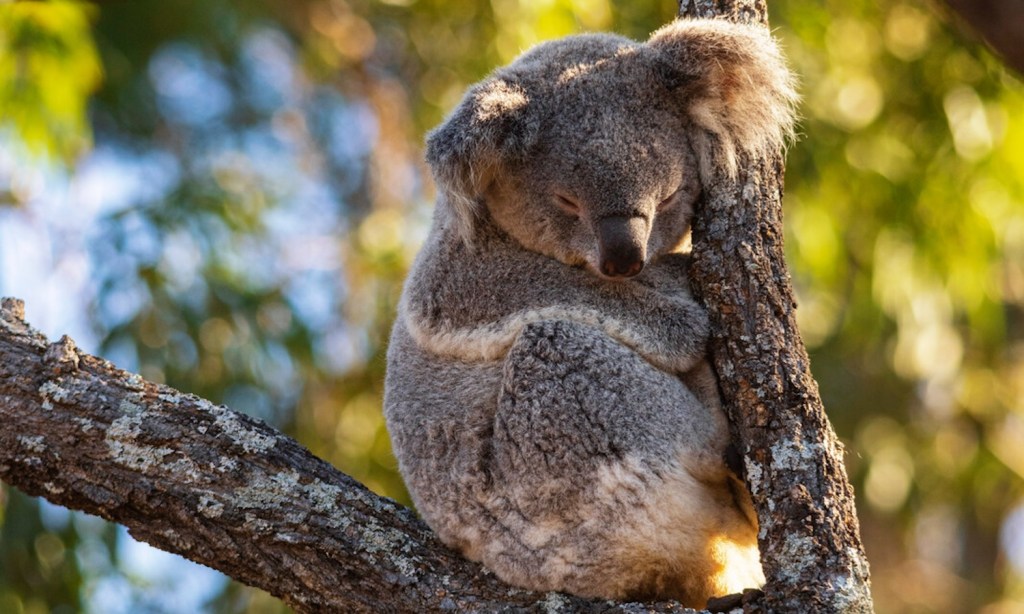
This article is sponsored by Visa.
Koalas are an iconic symbol of Australia and its wildlife. Sadly, our cutest native species also faces a critical battle for survival. Habitat loss, climate change and more have pushed this marsupial into endangerment and towards extinction. But, in the wake of this, Taronga Zoo and the Taronga Conservation Society Australia are fighting the good fight to secure the koala’s future.
We know Taronga Zoo for its world-famous koala encounters. How many global megastars make it a must-do to take a snap with a Koala at Taronga when they visit Sydney? But Taronga’s commitment to koala welfare extends far beyond this, with the help of partners like Visa. With wildlife hospitals in Sydney and Dubbo, Taronga offers crucial rehabilitation for sick, injured, and orphaned koalas. These hospitals care for around 1,500 native animals each year. Here, a dedicated team of veterinarians and veterinary nurses provide expert care, aiming for the ultimate success: reintroduction into the wild.
Taronga’s impact extends beyond its facilities. Recognising the need for a multifaceted approach, Taronga has partnerships with other organisations to help accelerate the revival of our koala population. The zoo fosters strong partnerships with other organisations at the forefront of koala conservation. Koala conservation can’t be done alone — it takes a village. But, even with all the work Taronga is doing with the support of Visa, there are still ways we can help our koala population by changing daily habits.
Embrace Recycled Toilet Paper
1.5 million trees worth of toilet paper are flushed down Aussie toilets each year. That equates to over 2 billion rolls of toilet paper. Not only that, more than 90% of toilet rolls we use are made from virgin trees. Forests and bushland are still being cleared to meet this demand, which means koala habitats are at risk.
Opting for 100% recycled toilet paper is a win-win! It saves trees – no new ones are needed for production – making it a fantastic choice for the environment. Plus, recycled toilet paper is often more affordable than its virgin-tree counterparts, so it’s kind to your wallet too.
Get Your Green Thumb on
Not only is it important that we significantly reduce the amount of trees we cut down, but we need to offset the damage already done by planting new ones. So, why not consider getting into planting some Australian natives?
Not only do koalas famously love our native trees, but our environment is perfect for it. Australian natives often require less water and maintenance than non-native species because they are perfectly adapted to the local environment. If you have the means to do it in a backyard, consider planting trees to contribute back to nature. Even if you don’t have the resources, you can support local schools, councils and bush regeneration groups to help plant natives that in turn support native wildlife koalas.
Take it Easy on the Roads
Koalas are especially vulnerable to car accidents, particularly during busy times like school holidays. Collisions are a major cause of injury for koalas. When driving in areas known to have koalas, especially at dawn and dusk, slow down and be extra alert for wildlife. You might just save a life!
Of course, if you see a koala in need of help, report it immediately.
Keep Your Pets at a Safe Distance
As much as it breaks our hearts to say, our beloved pets can unintentionally pose a threat to native wildlife like koalas. Both domestic and feral cats are capable of hunting young koalas, especially joeys and adolescents. Even dogs can pose a danger to koalas that come down from trees.
To keep both your furry friend and our precious wildlife safe, there are some simple steps you can take. Make sure your cat wears a collar with a bell when outdoors. This gives wildlife a chance to hear them coming and escape.
Additionally, bring your cat inside at night, when native animals are most active. For dogs, always keep them on a leash in bush and forest areas, and try to discourage them from wandering near gum trees where koalas might be resting.
Switch to Renewable Energy
Take Taronga’s lead, and join them in the switch to renewable energy. By making the switch to renewable energy like solar or wind power, we can help koalas in a few key ways. First, it reduces habitat destruction caused by activities like coal mining needed for fossil fuels. This protects koala homes and food sources.
Additionally, it combats climate change, a major threat with rising temperatures and droughts harming koala populations. Switching to renewable energy isn’t just good for the planet, it’s a step towards a brighter future for koalas.
To learn more about how Taronga is helping our koala population, read more here.
Read more stories from The Latch and subscribe to our email newsletter.







